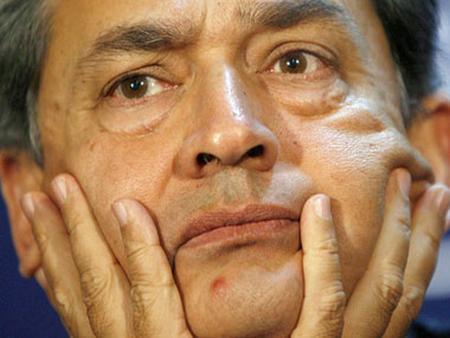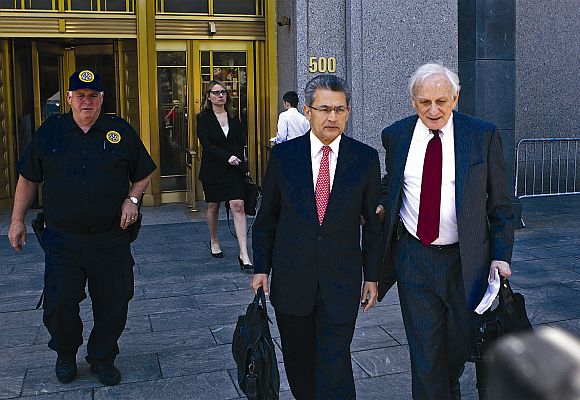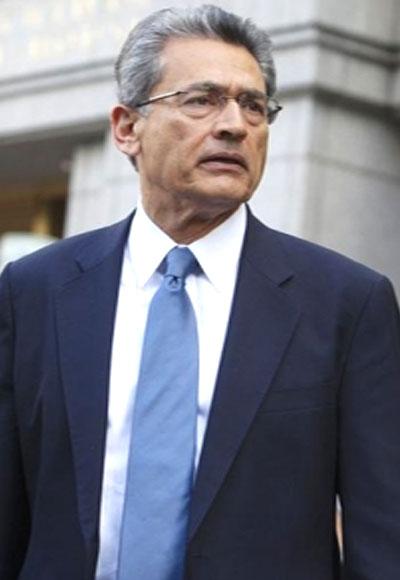 | « Back to article | Print this article |
Rajat Gupta loses bid to stay out of prison, term starts on June 17
Former Goldman Sachs Group Inc director Rajat Gupta has failed to persuade the US Supreme Court to delay the June 17 start of his two-year prison term while he pursues an appeal of his insider trading conviction.
Gupta, also a former global managing director of the consulting firm McKinsey & Co, had asked the country's highest court for permission to stay free during his appeal, after the 2nd U.S. Circuit Court of Appeals in Manhattan on May 30 denied him the same request.
Justice Ruth Bader Ginsburg, who handles emergency applications from the 2nd Circuit, on Wednesday denied Gupta's request to stay out of prison.
Click NEXT to read further. . .
Rajat Gupta loses bid to stay out of prison, term starts on June 17
The full 2nd Circuit has yet to decide whether to rehear Gupta's appeal of his conviction, which a three-judge panel of that court upheld on March 25.
Seth Waxman and Gary Naftalis, two of Gupta's lawyers, were not immediately available to comment. Waxman is a partner at WilmerHale and a former US solicitor general, while Naftalis is a partner at Kramer Levin Naftalis & Frankel.
Gupta, 65, is the highest-ranking corporate official to be convicted in the government's multi-year probe of insider trading in the hedge fund industry.
Click NEXT to read further. . .
Rajat Gupta loses bid to stay out of prison, term starts on June 17
A Manhattan federal jury in June 2012 convicted him of passing tips about Goldman, including news about its results and a $5 billion investment from Warren Buffett, to his friend Raj Rajaratnam, founder of the Galleon Group hedge fund firm.
In appealing his conviction, Gupta is challenging the use of wiretap evidence and the jury instructions.
Gupta's lawyers have said the appeal is likely to result in a reversal of the conviction and a new trial.
The trial judge, Jed Rakoff, has agreed to recommend that Gupta be assigned to a medium-security prison in Otisville, New York, about 70 miles (113 km) northwest of New York City.
Rajaratnam is serving an 11-year prison term after his 2011 insider trading conviction, in a case also built with wiretap evidence. He is appealing his conviction to the Supreme Court.

© Copyright 2024 Reuters Limited. All rights reserved. Republication or redistribution of Reuters content, including by framing or similar means, is expressly prohibited without the prior written consent of Reuters. Reuters shall not be liable for any errors or delays in the content, or for any actions taken in reliance thereon.


